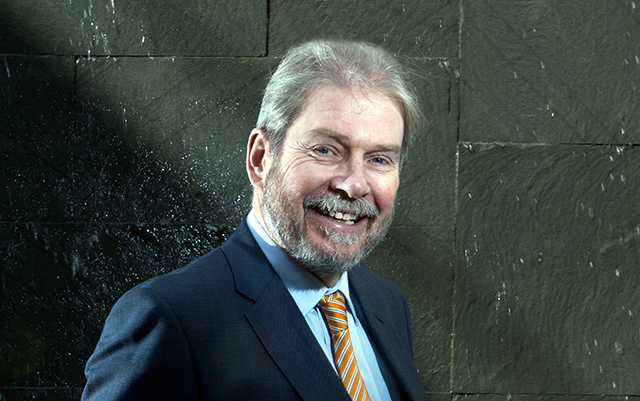Latin America’s Turning Political Tide

The general context of today’s politics in Latin America signals a distinct change in the political tide. The case of Mauricio Macri’s election victory in Argentina and the challenges of the leftist movements in Brazil and Venezuela are indicators of a growing political inflection in the region. Yet there are few indicators of how the next generations of leaders will govern and what the coming political era will bring. To discuss this important issue, the Inter-American Dialogue hosted Bello columnist and writer-at-large for The Economist, Michael Reid, inviting him to address the question of the turning of the political tide in Latin America. Michael Shifter, president of the Dialogue, moderated the event.
Opening remarks by Shifter served as an overview of the discussion. He stated that the cases of Argentina, Brazil and Venezuela give the impression of a turn or beginning of a political cycle towards open governments and political moderation in Latin America. However, he raised several questions about the reasons for the changes of such tide, specifically whether it was because of the end of the commodity boom or simply a growing exhaustion with left-wing dominance in some Latin American countries.
Reid began the discussion by stating that in fact there is a shift in the political tide in Latin America. He commented that we are seeing the political tide turning but still not at the same scale as a sea change. Changes in the typical liberalism of the 1980’s are still occurring while some recent cases indicate further adjustments in Latin American politics. He explained the cases of Argentina with Mauricio Macri’s election victory and Rafael Correa’s decision not to run for reelection in Ecuador as signs of the defeat of traditional leftist political forces in the region.
He explained how the left turn in Latin America began with Hugo Chávez in Venezuela and continued with Chile in 2013, Brazil and Uruguay in 2014, and with Costa Rica and El Salvador. Eventually, the left came to govern almost all governments in Latin America. Nonetheless, he considered the combination of corruption and austerity as a central factor of the changing tide. Furthermore, unemployment and an increase in poverty and social needs bolstered a growing feeling of discontent. Those factors have caused a major decrease in presidential approval ratings in Latin America from 2011.
For Reid, the left’s dominance lasted because of an economic book, successful redistributive social policies, and ideological fervor that grew out of the region’s relatively successful navigation of the financial crisis in 2008 and 2009. At present, however, the left has begun to lose ground. At root, this is because many still push for a residual Leninist ideology of revolution rather than a more democratic notion of power.
Reid thinks that the center right has an opportunity to rise to power but it needs strong candidates, a program that combines social policies with an agenda for growth clean government. He considers the current stage of Latin American politics not as a return to the Latin America of the 2000s, but rather a new stage. The left has changed politics in the region permanently, solidifying the demand for social and education policies and strong-rooted democracies. What is perhaps most likely is a period of shortened political cycles because governing will be tougher and effective public policies, that balance growth with social concerns, will be harder to maintain.
When asked about the case of Venezuela, Reid argued that the path for the opposition is difficult and there is still a risk of slipping into totalitarianism. However, he believes that the region would not remain silent if the elections in December are canceled or stolen.
On the case of Brazil, Reid is skeptical on the future of the Rousseff government amid the corruption scandals. To him, there are three possible scenarios: i) the situation continues to deteriorate rapidly with no resolution and major economic repercussions in the future; ii) investigations in the Lava Jato case run its course and leave Dilma Rousseff some traction to maneuver commerce and investment by pushing for fiscal reforms; iii) corruption affects Congress as well as the Rousseff administration leading to impeachment and political chaos.
Overall, the primary lesson for the future is that leadings in this coming era must find ways to govern effectively and deliberately, all while earning the patience and trust of voters. There is a risk of incoherent and unstable governments, but Reid remains optimistic that the new period Latin America is facing is a politically manageable one.



















